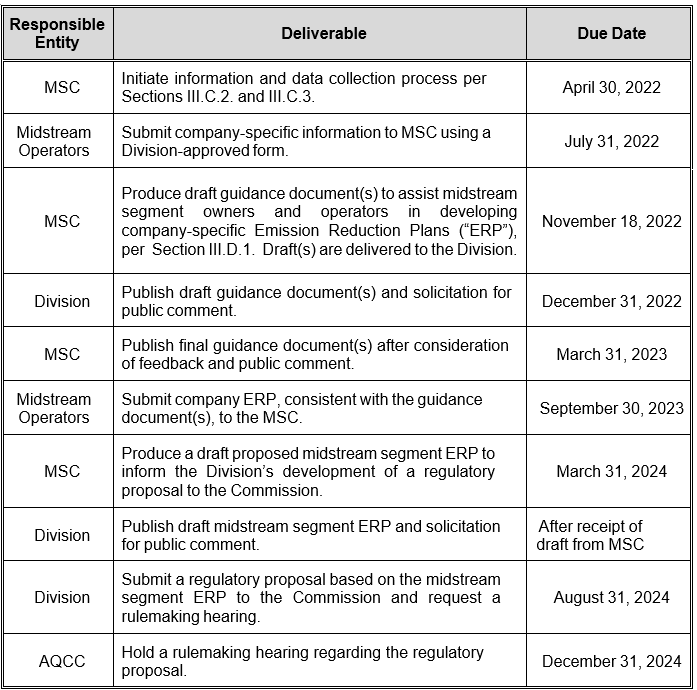In December 2021, the Colorado Air Quality Control Commission (AQCC) adopted a broad range of new regulations aimed at reducing emissions of greenhouse gas (GHG) pollutants and ozone precursors, with emission reductions prioritized in disproportionately impacted communities (DIC). The regulations adopted covered several broad topic areas and spanned both Regulation 7 and Regulation 22.
This post is dedicated to the revisions adopted for Regulation 22 that affect Midstream Operations:
- The latest full version of Regulation 22 can be found at the following link.
- A redline version of Regulation 22, showing all changes adopted in December 2021, can be found at the following link.
Reduction of Emissions from Oil and Natural Gas Midstream Segment Fuel Combustion Equipment (Part B, Section III)
Reducing emissions from midstream segment fuel combustion equipment (engines, turbines, process and other heaters, boilers, and reboilers), particularly as it involves the electrification of large combustion equipment, will need to be carefully coordinated to ensure the reliability of Colorado’s power grid. As such, the AQCC established the Midstream Steering Committee (MSC) to guide this process, with the end goal of reducing GHG emissions from midstream fuel combustion equipment by 20% over the 2015 baseline. In order to meet this goal, the MSC will gather information and data from electric utilities, the Air Pollution Control Division (Division), and midstream operators to inform its technical analyses and policy considerations. The work and recommendations of the MSC will ultimately enable the Division to submit a regulatory proposal to address fuel combustion emissions from the midstream segment to the AQCC in August 2024 for a rulemaking hearing to adopt new rules in December 2024. The following table from the MSC Charter identifies milestones through December 2024:



